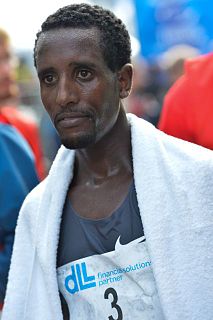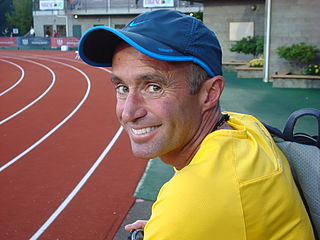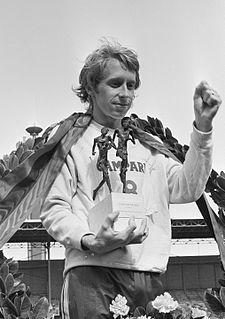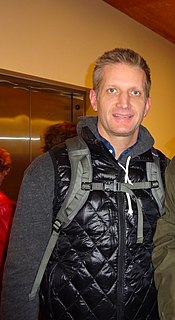A Quote by Robert M. Sapolsky
Most people who do a lot of exercise, particularly in the form of competitive athletics, have unneurotic, extraverted, optimistic personalities to begin with. (Marathon runners are exceptions to this.)
Related Quotes
Just as an informal, nonscientific observation, most people's personalities don't seem to change very much during their lives. There are exceptions in the case of people who go through hugely traumatic events or suffer from brain injury or disease. Some would argue that religious conversions can have deep personality-altering effects. But these are all exceptions to the rule.
One thing people underestimate is how markets don't allow anyone to do anything except make better and better products. There's not much leeway. The world is a lot more competitive than most people think, particularly in a high-technology area. If a company takes its eye off improving its products, if it tries to do anything that would be viewed as an exercise of power, it'll be displaced very rapidly.
Runners exalt the marathon as a public test of private will, when months or years of solitary training, early mornings, lost weekends, rain and pain mature into triumph or surrender. That's one reason the race-day crowds matter, the friends who come to cheer and stomp and flap their signs and push the runners on.
The human race is the most stupid and unfair kind of race. A lot of the runners don't even get decent sneakers or clean drinking water. Some runners are born with a massive head start, every possible help along the way and still the referees seem to be on their side. It's not surprising a lot of people have given up compeating altogether and gone to sit in the grandstand, eat junk and shout abuse. What the human race needs is a lot more streakers.
Do you like people? Most people claim that they like people with, of course, a "few exceptions." When the exceptions are added together it becomes clear that they include a vast majority of the people. It becomes equally clear that most people like just a few people, their kind of people, and either do not actively care for or actively dislike most of the "other" people.





































